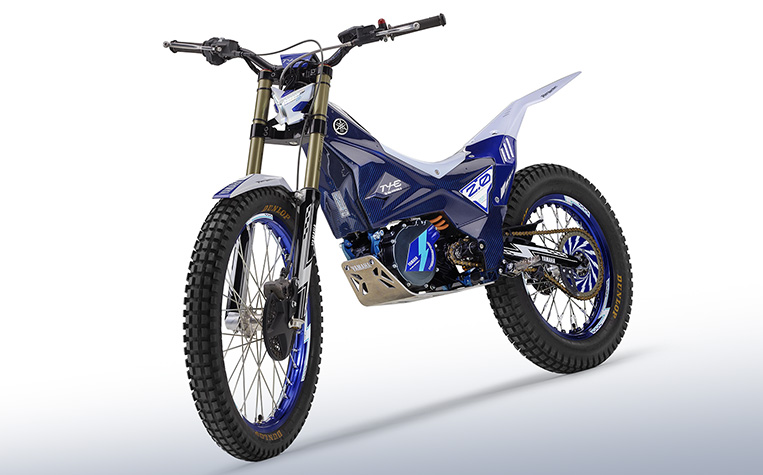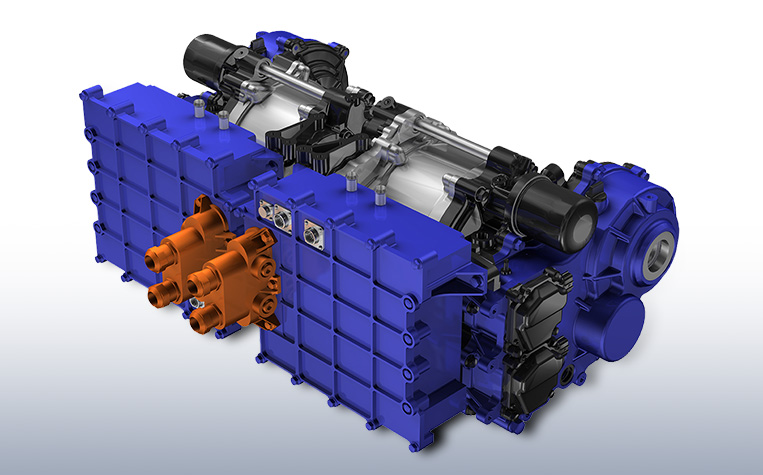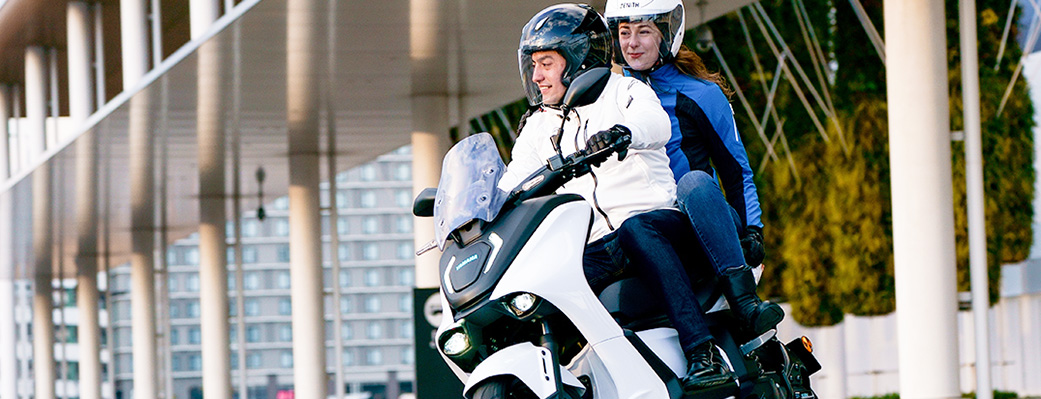With the aim of achieving carbon neutrality, the target goal values of the Yamaha Motor Group Environmental Plan 2050 (established in 2018) were re-evaluated in 2021. The new target goal values are aimed at cutting the company’s CO2 emissions in half by 2030 (compared to 2010/same hereinafter) and reducing them by 86% by the year 2050. This marked the start of a new process to achieve carbon neutrality using a method adopting existing internationally recognized offset methodology.
However, a large volume of our company’s lifecycle CO2 emissions falls under the Scope3 definition of emissions occurring when the products are in use. Regarding this portion, the new goal is to reduce it to 24% by 2030 and 38% by 2035, with the aim of achieving a 90% reduction by 2050. In our approach toward achieving these goals, we have newly indicated a combination of measures that include the development of products with greater combustion efficiency, expanded marketing of electric vehicle (EV) products, development of carbon-free fuel capable powertrains and more. In order to accelerate the pace of these measures, a Yamaha fund dedicated to the field of environmental resources was established in Silicon Valley in 2022.

The basic concept behind Yamaha Motor’s carbon neutral strategy is to further reduce the volume of CO2 emissions per individual during vehicle use. To achieve this, we will pursue two main objectives. One is to create new forms of compact mobility in completely new fields, and the other is to switch our existing compact mobility vehicles to powertrains with a smaller environmental footprint.
One of the measures we have taken in this direction was the introduction of a 125cc class-equivalent electric commuter vehicle, the E01, as a proof-of-concept test vehicle. In conjunction with this, we launched the NEO’S, a 2.5 kW-class electric scooter, for sale on the European market. Also, as a joint venture with the Gogoro company, we launched an electric scooter with a swappable battery system, the EMF, for sale in Taiwan.

Yamaha Motor’s efforts to broaden the possibilities of new powertrains for compact personal mobility products have not been limited to new product development, as they also include expanded efforts in a variety of new fields. These have included entering our TY-E electric trials bike in major international competitions, joint development of Hydrogen Small Mobility & Engine Technology (HySE) with a Japanese motorcycle manufacturer, as well as establishing a battery sharing service company, accepting a commission to develop a prototype for an electric motor unit for hyper-EV systems and starting pre-orders for the next-generation HARMO boat control system. In these ways, Yamaha Motor is accelerating research and development to offer a range of new choices in our motorcycle business and other divisions and product fields, including battery EVs, fuel-cell vehicles (FCV), carbon-free synthetic fuel use and more.
.










